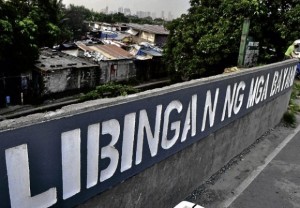TABUK CITY—An ecumenical group led by Catholic and Anglican churches asked the World Bank (WB) to examine the Kalinga irrigation project it financed because of serious work delays that it said had forced rice farmers to suspend planting last year.
In a Feb. 22 letter addressed to WB president Jim Yong Kim, the Kalinga and Apayao Religious Sector Association (Karsa) asked the bank to review the P425-million rehabilitation project for the Upper Chico River Irrigation System (UCRIS) operated by the National Irrigation Administration (NIA).
The group informed Kim that a 260-meter portion of the UCRIS canal was washed out when Typhoon “Ineng” struck the province in August last year due to the “failure of a government contractor to install the facility’s radial gates which controlled the flow of diverted river water.”
Karsa also rejected a recommendation of a WB team to extend the work contract for two more years to complete the repairs and upgrade of UCRIS.
The letter was signed by Karsa chair Rev. Luis Aoas, a Lutheran pastor.
NIA called for extension
The group, an alliance of churches in Kalinga province, said it was concerned about the impact of the delayed project on parishioners and on farmers, in particular.
UCRIS serves 11,300 ha of rice land in Tabuk City and Pinukpok town in Kalinga and in Quezon town in Isabela province. Its rehabilitation is one of 58 contracts under the WB participatory irrigation development project (PIDP).
The UCRIS contract is financed by a $10-million loan and is supposed to terminate in March. NIA has petitioned the government to extend the project until September.
Since Jan. 1, farmers have resumed their planting cycle now that UCRIS has been discharging water.
But the church leaders want an investigation of the PDIP, stressing in their letter that “the fiasco would not have taken place” had NIA and the contractor performed their duties properly. Estanislao Albano Jr., Inquirer Northern Luzon contributor


